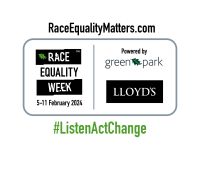Closing the gap: the invaluable role of diversity in PR
In the second daily blog marking CIPR's Race Equality Week, the co-founder of People Like Us, Sheeraz Gulsher, argues that tracking diversity progress and measuring pay gaps is crucial

In the early stages of my career, there was a time when I felt unstoppable. Landing top tier coverage everywhere, connecting with incredible photographers, sharing laughs with clients, and earning praise from seasoned team members created a sense of invincibility. That year, I was pleasantly surprised with a £500 Christmas bonus, a moment that held special significance as I couldn't help but think of my late father and how proud he would have been.
Reflecting on my father's humble upbringing in a one-room flat in Karachi with seven siblings (I still visit every few years), cherishing the journey he made to the UK in the 70s with little to his name, and imagining how he would feel seeing his youngest succeed, fuelled my gratitude.
Later that day, I overheard two junior colleagues expressing discontent about their £3,000 bonuses, feeling they deserved more. I brushed it aside, and thought no more about it and remained, well... grateful.
ONS research shows that people from most ethnic backgrounds are on average paid significantly less than their white counterparts. Though the reality is, we don’t truly understand the scale of the issue as there is no mandatory regulation for companies in the private sector to report their ethnicity pay gap. While the Government has set out voluntary guidance for companies to record their ethnicity pay gap data, this simply does not go far enough.
Embrace different perspectives
What does that mean for PR? When you break it down, the job of PR professionals is a relatively straightforward one. We are a bridge between an organisation, its message, and an incredibly diverse population. Between 9-11% of PRs identify as coming from an ethnically diverse background. And roughly 20% of the UK population identify as coming from an ethnic minority background. This increases to around 40% when you look at London, where the majority of the top jobs are. The challenge we’re facing is that if the voices shaping opinions are homogenous, we can end up relying on stereotypes and miss nuances that appeal to communities outside of our own. And we make mistakes.
Recent People Like Us research shows that diverse teams are happier, more creative and innovative. Different perspectives are the perfect storm for coming up with ideas outside of the box, gearing stories towards different communities and to avoid making mistakes. The PR industry has come some way in addressing its diversity and challenges with pay. For instance, we’re proud of our partnership with PR Week in creating the industry’s first gender and ethnicity pay gap study. Our methodology is straightforward and allows agencies to see where disparities are in every level in their organisation in terms of pay and representation. This level of evidence allows you to address disparities in a measurable way. We feel being transparent about pay is a true marker of an inclusive employer and the 38 agencies that entered deserve to be celebrated for their transparency – there’s a lot to be said about being held publicly accountable, especially if the numbers aren’t quite where we want them to be. Many have closed their gaps year on year, which is positive to see.
Take action now
Why is it important now more than ever to track progress? Our study also found the cost-of-living crisis is affecting us all, but not equally. People from ethnically diverse backgrounds were more likely to be borrowing money, moving back in with family and even spending less on food despite costs being demonstrably higher. The impact on mental wellbeing and work performance is immeasurable. The reality is if we aren’t paying diverse PR professionals fairly, we risk losing them.
The two easily actionable takeaways the reader can take from this are:
1. If you aren’t measuring your pay gaps, start. The data is invaluable, it allows you to make actionable change. Just be clear with your team explicitly what the data will be used for. I promise you, your teams and clients will appreciate you for it.
2. Be transparent about salary bands. You’ll save everyone’s time and your team won’t wonder whether they’re being underpaid.
There’s a clear case to show diverse thinking is great for business (a PWC study shows that ‘closing the ethnicity pay gap could generate up to £24bn for the economy and countless benefits for an organisation’). Beyond the numbers, it’s important to remember we are all human beings. It’s sometimes easy to forget our colleagues or the stakeholders we’re communicating to are people like you and I – people with hopes, dreams and fears. We all deserve a fair chance.

Sheeraz Gulsher is the co-founder of non-profit People Like Us, which aims to elevate ethnically diverse working professionals by dismantling workplace barriers through free support. The group is campaigning for the introduction of ethnicity pay gap reporting legislation. Gulsher also runs new talent consultancy Braver which aims to accelerate the media and marketing industries’ desire to be more diverse.
In tomorrow's Race Equality Week blog, we hear from Elizabeth Bananuka – founder and CEO of The Xec., Blueprinted, and BME PR Pros - on the value of networks and partnerships.

